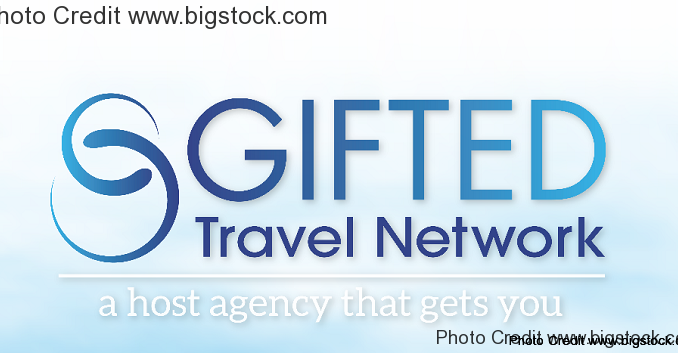
Vanessa McGovern caught the travel bug early in life — and it hasn’t left her yet. She figured out a way to center her career around her passion for travel, first working on cruise ships as an art auctioneer before transitioning to a role as a travel professional who planned trips for her own roster of clients bitten by the travel bug. Today, she’s the Executive Vice President of Strategic Partnerships and Business Development at Gifted Travel Network, a company that helps travel professionals build and maintain successful businesses as entrepreneurs. So what is it really like to work in the travel industry — and how can you carve out your own career while traveling the world? Read on for Vanessa’s words of advice:
What is Gifted Travel Network?
GTN is a travel host agency, which means that we host travel agents who operate their independently owned travel businesses under our industry credentials. We call them independent contractors, or ICs. Kind of like a real estate agency — you can join a nationally recognized company to make your job easier with access to offers, incentives, and resources. As a host agency, we can aggregate the sales of all of our ICs together so we can go to travel suppliers and negotiate additional incentives, and we also offer our ICs social media and tech tools as well as educational opportunities.
We’re different from other host travel agencies because we’re not concerned with making GTN a household name — we want to help our IC’s develop their own brands by fostering their expertise and specialties. In today’s digital age, travel professionals that subscribe to the expert model make more money.
What’s an example of a “specialty” for a travel professional?
Basically, you can specialize in a destination or demographic.
With a destination specialty, you only focus on one area of the world and become an expert in it. You may be a destination expert on the South Pacific, and you’ll know everything there is to know about Tahiti, Fiji, and Australia. If a client comes to you wanting to plan a trip that falls outside your specialty, you’ll refer them to someone else.
With a demographic specialty, you focus on one “type” of traveler and learn how to best serve them. For example, you can be a family travel expert; one year you may send a family on a multi-generational cruise, the next year you’ll send them on a European adventure, and the year after that you may plan their trip to Disney. You can even get more specific than that, for example, you can focus on families with special needs like food sensitivities, allergies, and disabilities, since they experience specific challenges while traveling.
What’s one of the biggest misconceptions about your field?
That the travel agent died with the internet. That we’re extinct. It’s not true! It’s just that our business model has changed.
The “travel expert” is thriving, because the public still has an insatiable desire for information about travel. As a travel expert, you can have an awesome business while living the “laptop lifestyle.” Unfortunately, many travel agents are still trying to operate the same way they did before the internet.
So what is the right business model?
The “Expert” business model — not the “order taking” business model. Twenty years ago, travel agents controlled distribution; you had to go to a travel agency just to get airline tickets! But today, consumers have access to the same information and many of the same booking tools as agents. So the new question is: what information can you trust? Today, a travel expert (and I prefer that term to “travel agent”) helps consumers sift and sort through the insane amount of information online to plan amazing itineraries.
Why is the travel industry a good fit for millennials specifically?
Well, being a millennial myself, one thing I care about in business is freedom. You can always make more money, but can’t make more time. There’s so much freedom within the travel entrepreneurial model — you can work from anywhere. You can open up a storefront in town, or you can spend the summer in Paris working from your laptop while serving clients back in the states. That’s freedom.
Millennials don’t buy into the idea that you can work for a company for thirty years, get the pension, and the company will take care of you — it’s not like that anymore. It’s on us now. This model fits millennials because there are many paths to profitability within travel. Millennials don’t like to be put in a box — you can create what you want in your business. You’ll have freedom, flexibility, and travel opportunities.
What advice do you have for millennials thinking about a career in travel?
They should know there are two paths within travel: entrepreneurship or employment. If you want to be employed in travel, my advice is to make sure you do your research. How visible are the businesses you’re interested in? What’s their social media reach and influence? Don’t align yourself with a company that doesn’t subscribe to strong digital age marketing techniques. You don’t want to work for an employer stuck in an old model.
If you’re going the path of travel entrepreneurship, you should align yourself with partners and companies in travel that support you in the development of your own personal brand. That’s the expert model, and that will create the space for you to have a thriving business. And you should know that entrepreneurship can be lonely. Find people who’ll support you, provide advice, and help you find answers. The power of a supportive community of entrepreneurs cannot be underestimated.
What kind of career in travel are you dreaming about? Share with us in the comments below!
